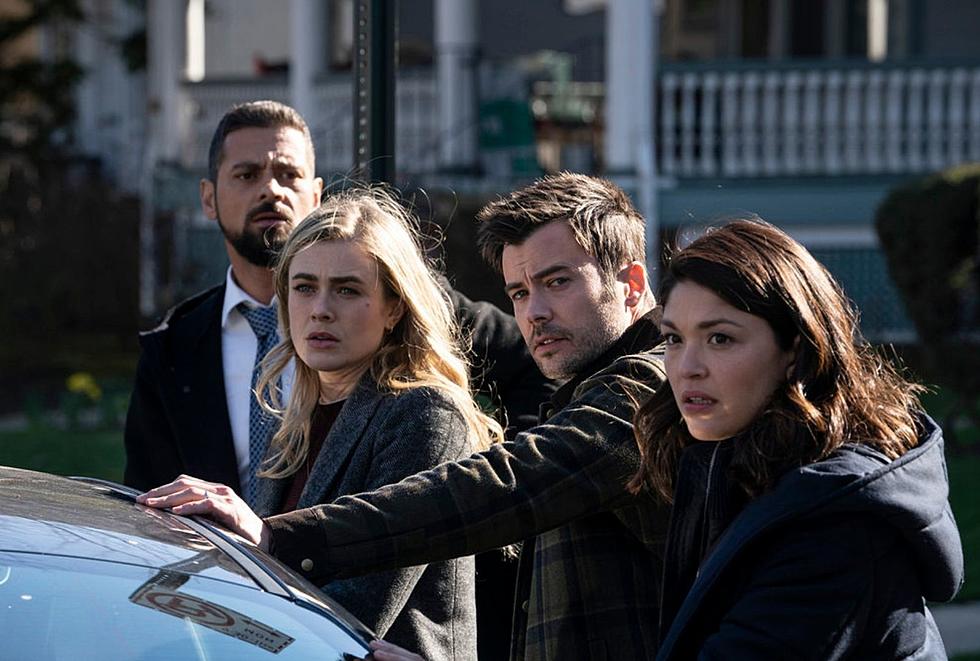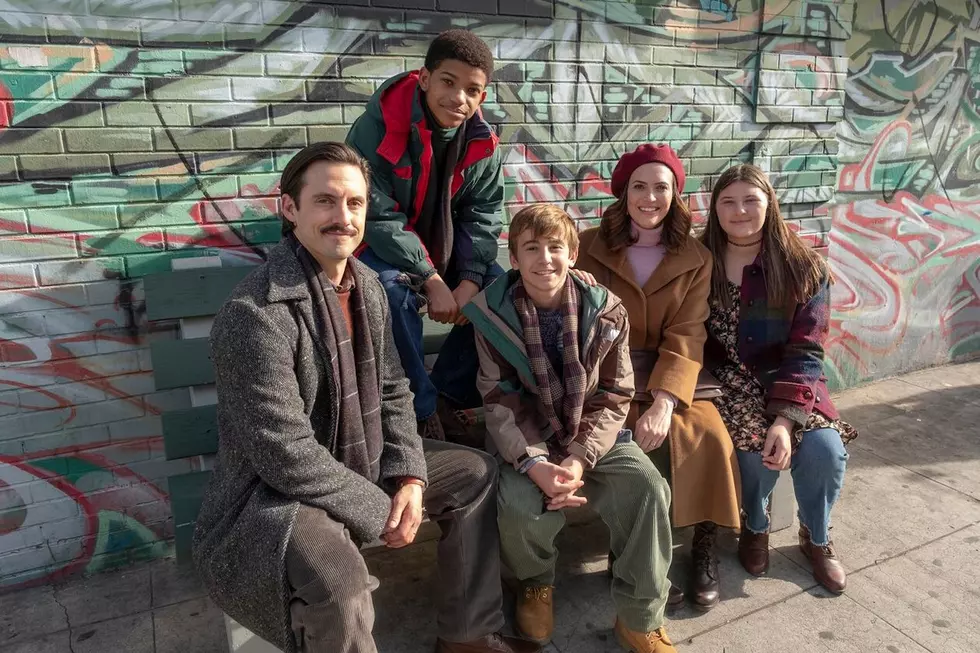
‘Hannibal’ Reveals the Living and Dead Pieces of His Past in ‘Secondo’
Acceptance, understanding, forgiveness…betrayal. These are necessary components in every relationship — they are not always pleasant and not always kind, but without them love is not capable of existing. Just as Will began to understand Hannibal’s twisted affection for him with last week’s bloody valentine, so does Will begin to understand his own affection for Hannibal this week. Just like any relationship, the results are exceedingly complex.
“I’ve never known myself as well as I know myself when I’m with him,” Will tells Chiyo in “Secondo,” with the episode’s title referring to the Italian word for the second part in a concerted piece. The premiere merely set the table, while last week’s “Primavera” served us our first course. But in keeping with Hannibal’s darkly symphonic and carefully orchestrated narratives (both of the character and the series), “Secondo” is a perfect fit.
Chiyo is the closest thing to a living relative Hannibal has, secreted away in his family’s eerie and elaborate estate and charged with holding prisoner the man who killed — and consumed — his sister Mischa. What Will tells Chiyo about himself is close enough to an outright admission of love, but the opposite is just as true: Will has never not known himself as well as he doesn’t know himself when he’s with Hannibal — if that makes sense, and I believe it does.
We cannot have forgiveness without betrayal, and in an ideal relationship — however apparently messy — we cannot have betrayal without forgiveness. This circular, psychoanalytical thought once again echoes the ouroboros quality of Hannibal’s manipulative practices. Everything runs in circles, consuming itself, just as Hannibal’s past trauma feeds his present behavior, and vice versa. Round and round it goes.
Chiyo is just as much a victim of Hannibal as Will is, which is to say they are just as intimately acquainted. Director Vincenzo Natali’s (killing it, so to speak, for the third week in a row) choice of having Hannibal’s face dissolve into both Chiyo and Will’s own is an overt but effective metaphor, which raises the question of who is the consumer and who is the consumed. Chiyo and Will have absorbed as much of Hannibal as he has absorbed of them, and the only answer to both of their questions — both logistical and existential — is the same man.
Relationships contain a multitude of dualities: admiration and fear; affection and resentment; trust and mistrust; betrayal and forgiveness, and so on. And the tie that binds those seemingly opposing forces together is codependence, which can be either healthy and happy or unhealthy and sinister. The relationship between Will and Hannibal (and, though we hardly know her yet, Chiyo and Hannibal) is as slippery as the liquid into which Hannibal’s face dissolves into Will’s own, and their codependence is just as cloudy.
Visually, “Secondo” ties neatly into the previous two episodes with another ballsy (if only slightly not as avant garde) entry into the third season. The snails in the basement where Hannibal’s prisoner is kept, the shattered glass and flowing blood, the dizzying effect when the two are combined, leaving us unaware of exactly what we’re looking at until we’re meant to know — Will raises the body of the prisoner whom Chiyo has killed in self-defense to create his own tableau, a tribute and message to Hannibal in equal measure. This prisoner’s death was an inevitability to Will and Hannibal, but to Chiyo he represents a moral test.
That test is echoed at Hannibal’s dinner table, when he stabs Sogliato in the head with an icepick, and Bedelia removes it to put the man out of his brain-scrambled yet oblivious misery. Technically, Bedelia killed Sogliato, just as technically, it was Chiyo who killed the prisoner — but neither of them would have acted without Hannibal’s instigation. Again it all comes back around to Hannibal.
The way Will and Chiyo move backwards signals not only their backsliding into the arms of the man who put them where they are, but a symbolic movement of hesitation, wherein we watch them briefly approach the point of forward momentum only to reverse course back to the point of no return. To move forward would indicate a straight line, but to go back takes us around in circles.
Will has forgiven Hannibal, in his own way, and as the returning Jack Crawford notes, Will accepts his former therapist for who and what he is — but acceptance does not indicate approval. We come back to last week’s big question: does Will see Hannibal as his God? Hannibal made Will as he currently is and left him in a state of disrepair and despair, with so many unanswered questions about his purpose, and whether that purpose is dictated by Hannibal. He created this Will Graham and then stepped away like some unseen deity, though Will’s faith, however shaken, remains.
Through Bedelia’s nervy psychological prodding and deduction, we learn that Hannibal consumed his own sister, though his level of participation remains unclear. Though Mischa never betrayed him; she merely influenced his pattern of behavior, and for that Hannibal has forgiven her. Can he do the same for Will, the man who broke the familial fantasy Hannibal constructed to deal with his reality?
“To forgive Will, I have to eat him.”
Additional Thoughts:
More From ScreenCrush









